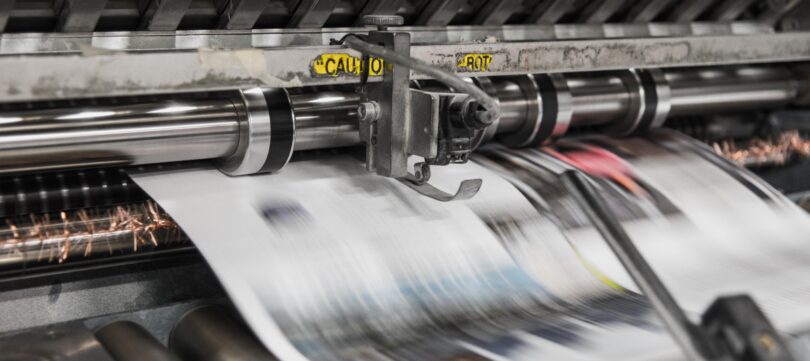Journalists often define themselves by their role in the process of democracy. As scholar James Carey wrote, “Journalism is another name for democracy”. The linking of journalism with democracy allowed US-centric scholars to easily define the standards of journalism and, for journalists, legitimised their position of political privilege. While it serves the purpose of scholarship, this definition of journalism is at best harmful to the development of journalism in our environment of increasing globalisation and at worst will be harmful to the democratic process and political freedoms.
The fight for freedom
A 2021 report on media freedoms in China by Reporters Without Borders (RSF) speculated that around 127 journalists were detained by the Chinese government with ten reporters arrested for reporting on the Covid-19 outbreak in Wuhan. From Putin’s rise to power in 2000 until 2007, RSF claimed 21 journalists were killed for reporting events in conflict with Russian state propaganda. CEO of online news website Rappler, Maria Ressa, is a champion of democracy in the Philippines and has consequently been the target of harassment by the Duterte government. She is a strong advocate for the role of journalists in championing freedom and human rights as “without facts you can’t have truth”. Journalists put their personal safety at risk to report on the stories they believe are important – stories in the public interest. To define journalism as only possible under democracy is to discount the value of journalism outside democratic nations and the key role journalism plays in the initial creation of democracy and freedom.
Democracy may provide the framework for journalists to operate freely but journalists must also fight to keep their media freedoms. The inflated view of media produced in democracies has led to complacency on the part of these journalists. In viewing journalism as a natural consequence of democracy, rather than a tool to maintain and further democracy, journalistic freedoms within democratic nations are put at risk.
The consequences of complacency
When we examine press freedom reports such as the RSF World Press Freedom Index (WPFI) in comparison to the Human Freedom Index (HFI) report compiled by the Cato institute there is consistent overlap. Of the top ten countries in the HFI report, five are also in the top 10 of the RSF report and another four are in the top 20. The only country falling outside the top 20 is Australia. While it ranks at number eight on the HFI report, Australia sits at 25 on the WPFI. The ranking of press freedom is performed through the lens of liberal democratic journalism. The safety of journalists, the separation of media from political or religious power, and political infrastructure allowing for the production of journalism in the public interest are all rewarded. However, Australia’s reasonably good standing in the WPFI is disguising a problem that is not being addressed – the reason our WPFI is falling.
A 2016 study of media concentration put Australia at number three for the most concentrated media ownership globally, only behind Egypt and China, based on 2011 media statistics. By readership, 59 per cent of the metropolitan and national print media market is controlled by News Corporation and another 23 per cent is controlled by Nine Entertainment. Within the liberal media model, proposed by scholars Hallin and Mancini in 2004, journalism is driven by market demand. Journalists are beholden to the news desires of the public and what headlines sell the most views to bring in their pay cheque.
The reliance on a commercial market, which is increasingly struggling due to shifts in the media landscape, obscures the role of journalists in maintaining democracy. As journalists stray further from public interest journalism they are becoming complacent, taking their press freedoms for granted and forgetting the power of journalism in the political sphere. The partisanship of the Murdoch controlled press has effectively devalued political journalism in the eyes of the Australian public and distrust of media is increasing in democracies globally. The pressure on politicians to act with substance, conviction and honesty is absent where journalists are absent.
Freedom of speech: A gift not a given
The journalists of the world’s democratic nations must look to those journalists operating under oppressive regimes if media freedoms and human rights are to flourish on a local and global scale. If we discount journalism produced outside the liberal democratic tradition, we may fail to see the shortcomings in our own journalistic practice that it highlights. Government censorship and state-run media control may not be ever-present threats to freedom of truth and information in the minds of Australian journalists and the public, however, the Australian Federal Police raid on the Sydney headquarters of the ABC in 2019 acts as a reminder that the government is not a friend to journalists. Governments will not allow journalism to operate unchecked even within the freedoms of democracy, just as governments will use whatever power they can take. Journalists must keep an ever-watchful eye on the government if democracy is to thrive, a lesson the journalists of democracies must remember.
“Every journalist has to hold the line because we will only get weaker with time.” – Maria Ressa
Featured image: Print is Alive by Bank Phrom on Unsplash








Carey’s idea that journalism is another name for democracy is far too simplistic. While on the face of it, journalism in the liberal democratic model is free of censorship and propaganda, what is actually the case in practice? Is there just an illusion of journalistic freedom in Australia given media ownership is among the most concentrated in the world? In circumstances where the Australian media is another victim of our ever-increasing capitalist society, consumers of news need astute news judgement to filter through political alignments and agendas adopted by media organisations. Perhaps we have much to learn from journalism outside democratic nations?
I think we should bring in to question the assumption that journalism and western-style democracy are always correlated and mutually-reinforcing. As we can see from Gab’s exploration of journalistic practice in Russia and China, journalism is produced in non-democratic societies. What is different is that the stories being told in these countries reflect societies which hold values that are not the same as those we are familiar with in western society, and the information communicated may pass through different checks and filters. Legitimate journalism does exist outside liberal democracies, reflecting the nature of the society which produces it.
When we look at how we define ‘journalism’ from a western liberal democratic standpoint, it’s easy to view it dichotomously. For example, journalism must be allowed to exercise unrestricted freedom to act in the best interest of our western version of democracy. I agree with Benita’s comment that Carey’s definition is too simplistic. As Gab’s investigation of global press freedom rankings shows, press freedom comes at a cost. Journalistic practice outside the western liberal definition expresses the values, behaviours and attitudes of non-western societies, and offers much insight into the cultures that it represents. What if tensions between the government and journalists, though arguably too destructive in some countries, exist to progress societies?
I could not agree more with the idea that it is dangerous to view journalism as a natural consequence of democracy. As you say, journalism is a a tool vital to the creation and maintaining of democracies and ignoring the role and efforts of journalists operating outside of democracies can only harm both. At a time when the public perception of journalists and journalism are at a low point, looking to the personal risks taken by journalists working in places such as China and Russia should serve as a reminder of the true value and role of journalism. Otherwise, that cliché of not knowing what you had until it’s gone might apply.
There is certainly complacency about Australia’s highly concentrated media ownership, but I’m not certain that complacency lies with journalists themselves. The media industry has become increasingly precarious for the majority of its workers, many of whom are on short-term contracts or are freelancing. In my view, what’s needed is a stronger government response to regulate media ownership in Australia. Once upon a time we did have rules around concentration of ownership across platforms, but this has slowly been eroded, primarily to the benefit of conservative governments that are supported by Murdoch’s media monolith. Journalists absolutely should fight loudly for investigative, public interest journalism, but at the end of the day the power lies with the owners of media conglomerates and our government that can regulate them.
We are taught in the practices of journalism, that we are the voices for the people, always telling stories for the public interest. Very little do we think about how journalism is still overruled by a higher power or business. A business is a business, they have an agenda and money to make. How do will we as a society realistically escape the majority ownership of the media, to allow for fairer, unbiased reporting? I don’t know if it will ever happen. I do believe though, with the increase in social media and online ways of receiving news, it allows for varying perspectives to disseminate news – but is this targeted at a certain demographic? It’s a never ending circle of positives and negatives.
Gab’ Petracca has packed much into her opinion piece on a topic that is not only endless but increasingly alarming. The dichotomy commented on by Kazmierczak is the strength in this article, and I would draw upon the raiding of the ABC by the AFP as the pointy end of the free-speech/democracy love-hate relationship. Actually, there seems very little love. Strength in journalism would be heartened by the very reporting of the police raids which in turn may develop a cycle of further harassment or silencing (depending on which side one stands). I am not convinced that the people in liberal democracies will be so easily duped: we have come too far if all reporting and commentary on the ABC raids have produced nothing but damnation, and also brought just greater scrutiny to Smethurst’s original story. Give them enough rope.